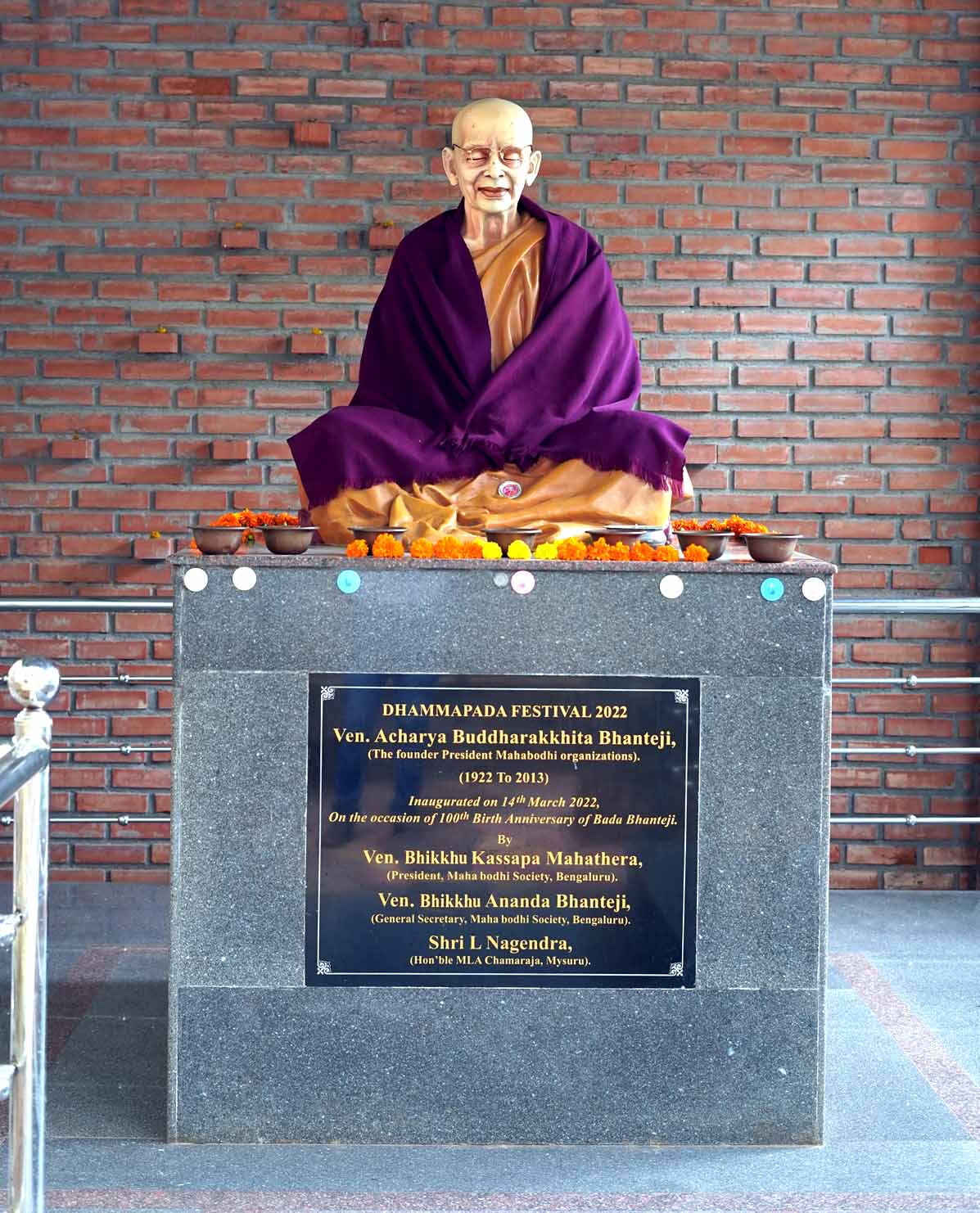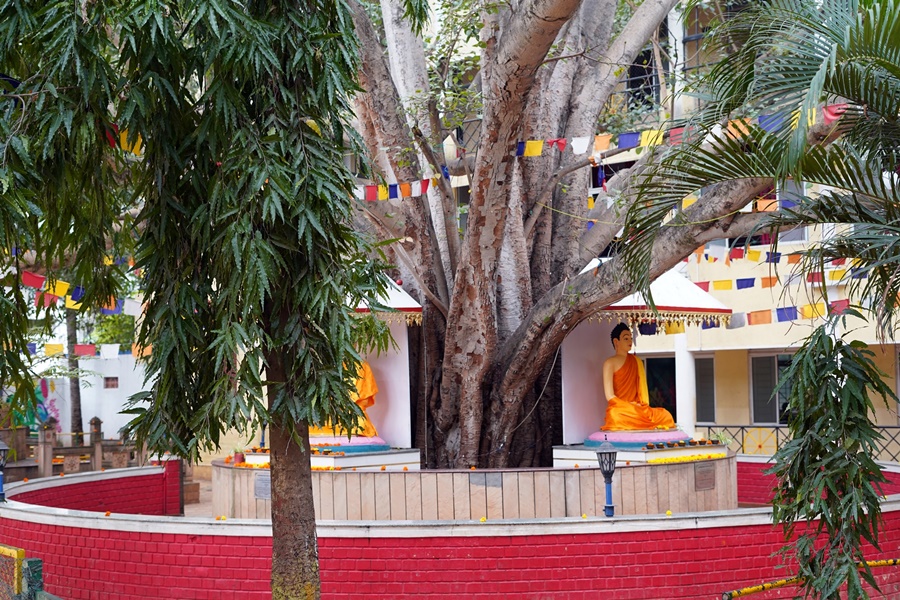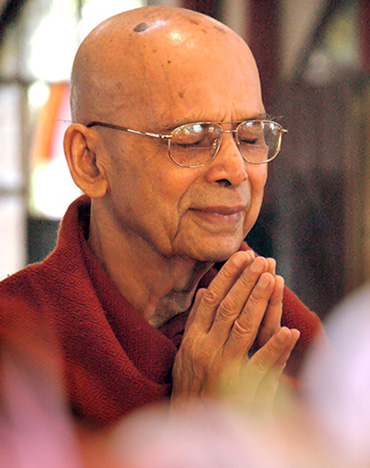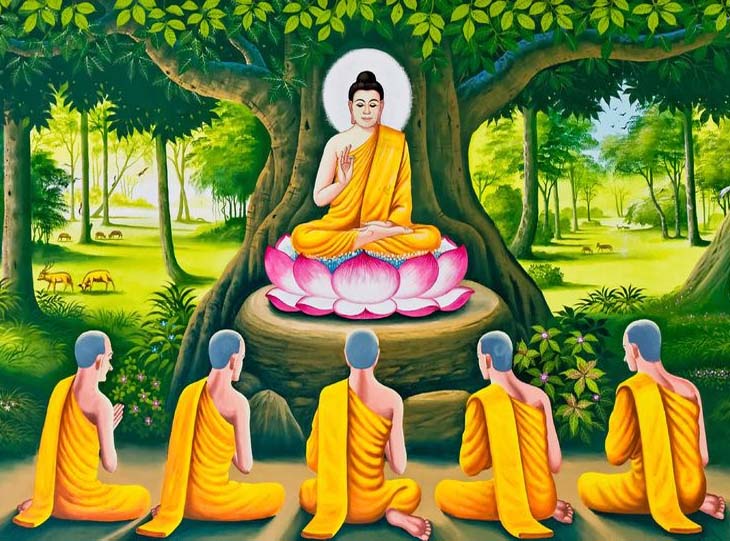Origin and History
Mahabodhi School Mysuru
Venerable Acharya Buddharakkita, founder president of Mahabodhi Organizations, started Mahabodhi Educational Institutions with a goal of giving the best of modern education along with character building moral teachings. Mahabodhi School is managed and run since 1975 by Mahabodhi Maitri Mandala, Bengaluru, a charitable Society. Mahabodhi School is situated in serene area of Saraswathipuram, Mysore. The School provides HOLISTIC EDUCATION in an atmosphere of love and care allowing the children to grow naturally and happily developing intelligence, compassion and wisdom at every stage.
HOLISTIC EDUCATION is to bring about total personal evolution, physical fitness, emotional balance and strength, social responsibility, cultural richness, spiritual growth of a child. This is achieved through:
- Building of Character based on moral and spiritual principles constituting the foundations of happiness and peace.
- Academic studies, which fulfills one’s intellectual thirst and also help a person to find one’s profession in the life to help oneself and others.
- Caring inner environment and outer environment which includes relationship with people and nature around oneself.

Philosophy of the school
Philosophy of the school is based on the Noble Eightfold path taught by the Buddha to make life meaningful. This path is a comprehensive one which includes Sila Visuddhi ( Moral Practice), Citta Visuddhi ( mental training ) and Prajna Visuddhi ( Wisdom development).
The factors are divided as follows:
- Sila Visuddhi – Right Speech, Right Action, Right Livelihood
- Chitta Visuddhi – Right Effort, Right Mindfulness, Right Concentration.
- Prajna Visuddhi – Right Understanding, Right Thought


Sila Visuddhi
1. Avoiding false speech = Truthful speech
2. Avoiding back biting = Speech leading to Harmony
3. Avoiding harsh speech, shouting, scolding = pleasant speech
4. Avoiding gossip = Useful speech or silence
Purpose: Effective communication in keeping with higher laws. To remove fear and develop fearlessness, to enjoy this precious gift of communication and live a harmonious life with all.
1. Not harming any living beings = saving, love, compassion
2. Not taking what does not belong to us = giving, sharing
3. Not to commit adultery = respect family values, trusting
4. Not to consume intoxicants = meditate, create clarity
Purpose: To live a blameless life, to bring happiness within and for others, to quality as humans, to enjoy the life of blamelessness.
1. Not to engage in anything that brings harm to other living beings
Purpose: To live a life of benefit for all. To know what is exactly right thing to do at present moment, to set oneself a right example, to avoid polities and keep oneself cheerful, to enjoy one’s calling.

Chitta Visuddhi
1. Effort to stop unwholesome if not yet arisen
2. Effort to remove unwholesome if already arisen
3. Effort to develop wholesome if not yet arisen
4. Effort to preserve wholesome if already arisen
Purpose: To flower our inner potentials – faith, effort, alertness, to create interest, to create sense of achievement, to enjoy the strength of mind and what we are doing to achieve the highest.
1. Awareness of our body and actions
2. Awareness of our emotions
3. Awareness of our mind
4. Awareness of our realities
Purpose: To be aware of what were are doing at gross body level at emotional level, at thought level and at the level of realities of life, to create variety, to be genial, to enjoy being here and now.
1. Overcoming obstacles of the mind
2. Distraction due to sensual objects
3. Distraction due to hateful feelings
4. Distraction due to laziness or sleepiness
5. Distraction due to non concentration
6. Distraction due to guilt feeling
7. Distraction due to non-clarity = doubts
8. Maintaining calmness
9. In pleasant moments
10. In unpleasant moments = Patience
11. In neutral moments
12. Technique of developing concentration = meditation
Purpose: To develop concentration, to overcome distractions, to develop strength of the mind, to enjoy the bliss of calmness.

Prajna Visuddhi
1. Understanding of what is right and what is wrong
2. Understanding every action has result – good bears happiness and bad bears suffering
3. Understanding there is cause for everything and everything is changing
4. Understanding that everything survives on FOOD – material and mental – what to feed to the mind and to the body
5. Understanding that one is responsible for one’s happiness and suffering
6. Understanding of Realities of life
Purpose: Develop spirit of enquiry, experiential knowledge, creating ways of experiencing things, aiming at excellence, scientific temper, to enjoy the ability to let go of things in life.
1. Thoughts of giving, sharing, honoring, respecting, egolessness = opposite of narrow mindedness
2. Thoughts of loving kindness, tenderness = opposite of hatred, anger, envy, dislike, disinterest, etc
3. Thoughts of compassion trust = opposite of cruelty, unconcern of fellow beings, harming, disregard and disrespect to others growth.
Purpose: To maintain peace within, to overcome arrogance, to create trust, to make good foundation for speech and actions, expressions, to enjoy every moment of thinking.

